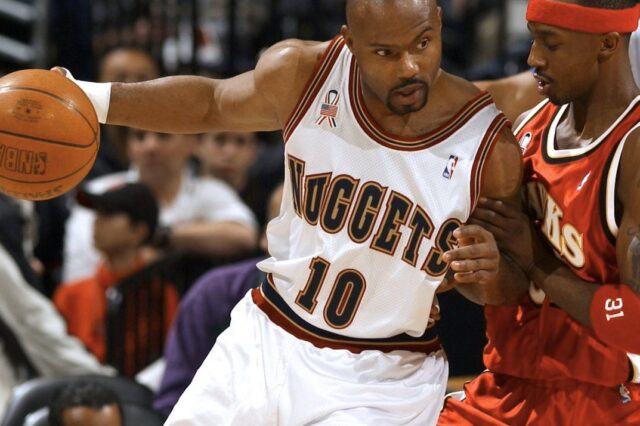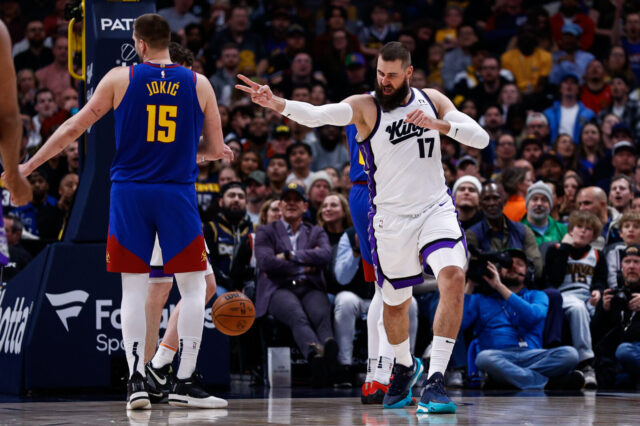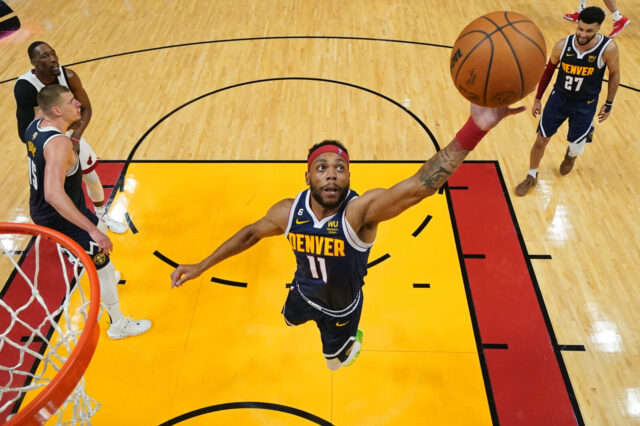Sunday was just like any other day at the office for me. As a men’s basketball team manager at the University of South Carolina, it’s my job (along with eight other managers) to help prepare the basketball team for what’s to come. Practice, travel, shootaround, and games bring similar tasks for the managers, who perform the jobs behind the scenes to “grease the wheels” of the program, as they say.
This past Sunday, we were preparing for travel to Knoxville, Tennessee to face the 25th ranked Tennessee Volunteers. Having gone through a losing streak, the general mood in the building is somber, yet the managers always found a way to make the best of things. Packing bags full of practice gear, extra shoes, water bottles, game stools, and jerseys can be a monotonous task, but the new-look Cleveland Cavaliers are destroying the Boston Celtics on ABC, made for some good NBA conversation.
“Do you think the Cavs will make the Finals again?” I asked.
“Of course,” “no chance,” and “with (Isaiah Thomas) gone, yes” were three simultaneous responses I received.
This blew up into an argument, followed by some general ribbing and a few informal wagers being made. The conversation shifted to the Western Conference, the new-look Houston Rockets, the Utah Jazz winning nine in a row, and the best up and coming teams in the conference to challenge the Warriors.
I piped in, “what do you think about the Nuggets?”
“No chance,” “they’re in the playoffs?” and “maybe” were the chorused replies.
The Denver Nuggets have yet to achieve national respect, as many Nuggets fans have frequently observed. There are a variety of reasons for this so called “disrespect,” but here’s my personal opinion why:
The Nuggets are in basketball purgatory.
This content is no longer available.
Since a marvelous 2012-13 season, the Nuggets have finished four straight seasons in between 30 to 40 wins. They haven’t made the playoffs in over four years, and they haven’t had a top five pick in the NBA draft to generate the kind of buzz like the Philadelphia 76ers or Minnesota Timberwolves have provided with high caliber prospects. Instead, Denver’s journey has been methodical.
Only the Sacramento Kings have matched the Nuggets in the last four years as teams that haven’t made the playoffs and haven’t secured a top five pick. That’s not a category Michael Malone, Tim Connelly, Josh Kroenke and co. want anything to do with.
But slowly, the team is breaking out of basketball purgatory. Take the above picture as a visual metaphor: the reflection of the players on the court is where the organization currently stands. It’s pretty easy to make out Nikola Jokic in the reflection, a chunky basketball wizard who seems to be the main element of Denver’s rebuild. Gary Harris is also clearly seen now, learning to play with the basketball in his hands. In the background, another figure is emerging. Jamal Murray perhaps? He’s been pretty sweet lately.
After that, it’s lots of questions, empty space, and blurry images. Is Trey Lyles a part of the future? Where are the complementary pieces? Is it certain that the above three are enough to put the Nuggets over the top? Where in the world is Paul Millsap? Is Michael Malone in the picture?
The Nuggets still have a lot of questions to answer, and a lot can change in two years. Still, the most important pieces of the puzzle look to be in place at a young age.
This content is no longer available.
Each data grouping represents the five players who have collected the most win shares at a respective age grouping. Jamal Murray has the third most win shares among all 20-year-olds this year. Nikola Jokic and Trey Lyles are second and fifth among 22-year-olds respectively. Gary Harris is third among 23-year-olds.
What is the significance of this? Young players generally improve as their careers progress. A player’s prime usually ranges from 24 or 25 years old to 28 or 29 years old. It’s reasonable to expect improvement from Denver’s current group of youngsters, especially if they remain at the top of their specific age class.
Here’s how Denver’s young core compares to players at the same age ranking five seasons ago during the 2012-13 season:
This content is no longer available.
The estimated number of win shares is made by prorating each player’s current win shares out to a full 82-game season. The comparison is made by taking the win shares of the closest player at that age in the 2012-13 season. Now, imagine for a second if the Nuggets had Kyrie Irving, Kemba Walker, Jimmy Butler, and Paul George on their roster. They would be pretty darn good.
There are no guarantees in basketball though. Injuries happen, potential may remain as just potential rather than production, and win shares is a flawed statistic anyway. The point of this comparison though, is to show what’s really hindering the Nuggets in the 2017-18 season: time.
Time is Denver’s biggest enemy. Coaches, front office, players, and even fans, see the potential of these young players and immediately raise their expectations. Gary Harris hits a game winner against Russell Westbrook and the Oklahoma City Thunder? The bar raises. Jamal Murray puts up 38 points on Damian Lillard and the Portland Trail Blazers? The bar raises. Nikola Jokic puts up nine triple-doubles in the last two seasons and commands the offense nearly every game? The bar raises.
Time, however, will almost always prevent young players from realizing their potential at such a young age. There are too many things to learn, too many life decisions to make, too many adjustments to account for. The Nuggets are taking things slowly with their young players, and it’s the right decision. They are slowly handing over the reins to Jokic, to Murray, to Harris.
So, Nuggets fans, don’t fret if the 2017-18 season doesn’t work out perfectly. There will be many more seasons featuring Jokic, Murray, and Harris in a Nuggets uniform, so the team also has time on their side. A young big three is forming in Denver, and with it, Denver’s ascension out of basketball purgatory will finally occur.
This content is no longer available.


